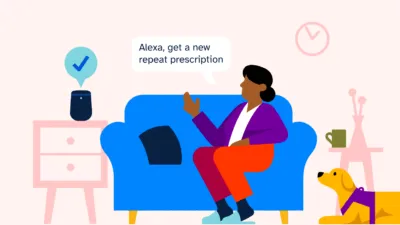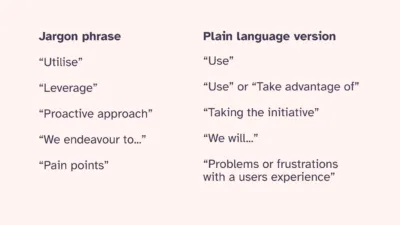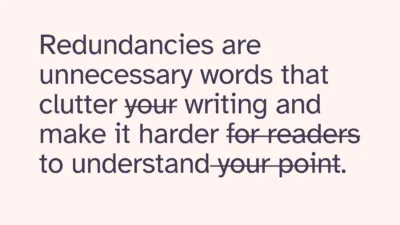17 Jun 2024
The power of plain speaking

Do you ever find yourself trying to read something that should be simple, but instead it feels like a cryptic crossword? We’ve all been there. Struggling to understand long sentences, big words, and industry jargon. It’s frustrating and usually unnecessary.
-
Anna Boscoe
User Experience Content Specialist
Anna Boscoe
We frequently help clients to make their content more user-friendly – for example Sport England, Talk to Frank or The Co-operative Bank. We’ve also embraced plain language in our redesign of the CXPartners website, which is underway. We realised how much technical language we used daily, and saw the opportunity to be clear and concise. It took some practice to ditch the jargon. But once we got into it, it was surprisingly refreshing.
This blog will show you why plain language is your secret weapon. We will also share some easy tips to help you write clear and engaging content.
The problem with jargon
‘Jargon’ is specialised vocabulary used within an industry or profession. It’s efficient for insiders but a barrier for everyone else. It’s like a secret handshake – it excludes those who don’t know the code.
In the UK, one adult in every seven has reading and writing skills at or below the level expected of children aged nine to eleven. What’s more, one person in every ten is dyslexic. Many non-native speakers find it hard to understand complex language as well.
Even for those without these specific challenges, words like “utilise” instead of the simpler alternative “use” can be frustrating and make sentences harder to understand. This is because our brains have a limited capacity for processing information, and complex or unfamiliar language overloads this system.
Jargon isn’t always a problem, but it can be confusing if you’re talking to people who might not understand these words. Simple, plain language can often communicate an idea more effectively than jargon, breaking down barriers.
Why use plain language?
Here’s why it’s important for businesses to use plain language:
Clarity and inclusivity: Plain language gives everyone, regardless of literacy level, native language, or disability, a better chance of understanding your message. This is more inclusive and ensures more equal access to information.
Improved user experience: Clear communication creates a smoother and more positive user experience. Readers can find information more quickly and easily, which leads to higher satisfaction and engagement.
For example, a 2020 study found that 60% of people understood a 100-word passage rewritten in plain language within 30 seconds, compared to only 40% for the original text written in ‘corporate speak’.
The study also showed that people grasped the meaning of the plain language passages better, with 68% understanding them compared to 49% for the complex phrasing.
A study in 2012 also showed people overwhelmingly prefer plain language in legal documents (80%). Interestingly, even those with advanced education and legal expertise favoured plain language over legal jargon.
Reduced costs: Quicker and more accurate customer understanding can reduce the need for follow-up questions or clarifications. This can translate to less time spent by customer service representatives explaining complex wording, ultimately reducing costs.
As an example, an insurance company’s benefit letters were full of long sentences and industry jargon. When they rewrote their letters using plain language, they saw a 19% drop in customer calls related to benefits enquiries. This translated to a cost saving of over £255,000 per year.
Trust: Using plain language demonstrates respect for your audience and a commitment to clear communication. This builds trust and strengthens your brand image.
For example, a 2019 study found that readers saw plain language corporate social responsibility information as more credible than complex language versions. This suggests plain language can build trust.
So, plain language isn’t just about making information clear – it’s about building trust and saving your company money.
From jargon to plain speaking
During the cxpartners website redesign, we wrote case studies about some recent projects. Sometimes we realised that we were slipping into jargon without even noticing. Here’s an example of how we simplified a sentence and removed jargon to make it easier to understand:
“We then moved into our next phase of research, using a researcher posing as the voice of Alexa. Known as ‘Wizard of Oz’ or WOZ prototyping, this lo-fi approach gave us the chance to set up an Alexa-type experience without having to build a prototype first.”
This was replaced with:
“But we didn’t waste time programming conversations for a smart speaker. Instead, a team member impersonated a voice assistant. They would listen to requests and follow a script. We got early feedback on the wording and we could quickly try alternative conversation designs.”

Jargon buster
Below are some unnecessarily complex words that are commonly used, and their simpler alternatives:

There are many other ways to make your content clear and concise. Here are a few tips that we’ve found useful:
Avoid ‘redundancies’: Redundancies are unnecessary words that clutter writing and make it harder to understand. By eliminating redundancies, you ensure your message is clear and easy to understand for everyone.

Shorter sentences: When you’re writing, look for sentences that seem lengthy and complex. Once you find a long sentence, consider breaking it into two or more shorter ones.
Active voice: Use active voice instead of passive voice. Research shows that using the active voice makes content livelier and (usually) easier to read and understand. The active voice makes it clear who is doing what. For example “We shipped your order” (active voice) is better than “Your order was shipped by us” (passive voice).
Bullet points: Bullet points and numbered lists make information easier to scan and understand.
Visuals: Images, diagrams or even videos can help to break up text and reinforce meaning. ‘Beyond words’, by CXPartners’ Director of Practice, illustrates how we need to use more than words to help people understand financial services better.
Know your audience: Consider who you’re writing for and tailor your language accordingly. For example, if you were writing an article for board-level business executives, using terms like ‘return on investment’ would go unnoticed. But that might be jarring for an audience of design students.
Use examples: Using stories or examples is a powerful way to illustrate your point and help readers get to grips with the meaning of your content. Here are some examples…
For a travel company an insight about failing airlines might be: “Information isn’t always readily available”. It suddenly makes more sense when you add this example: “I couldn’t find out what was happening with my flight home, no-one seemed to have any clue”.
For GambleAware an insight about having support with their ‘whole life’, and not just their gambling, reassures people that they can manage their life outside of gambling. But add an example like ‘e.g. finances, self-care’ and it suddenly makes much more sense.
Steven Pinker in ‘The Sense of Style’ says:
Readers will also thank a writer for the copious use of for example, as in, and such as, because an explanation without an example is little better than no explanation at all […] Sometimes two examples are better than one, because they allow the reader to triangulate on which aspect of the example is relevant to the definition.
Helpful resources
Making the switch to plain language doesn’t have to be hard. There are many online tools and resources available to help you on your journey. For example, The Hemingway Editor is a free tool that highlights complex sentences and suggests simpler alternatives.
There are also many books on the subject. Here are a few that we’ve found helpful:

- ‘The Sense of Style’ by Steven Pinker
- ‘Write to the Point: How to be Clear, Correct and Persuasive on the Page’ by Sam Leith
- ‘First You Write a Sentence: The Elements of Reading, Writing … and Life’ by Joe Moran
- ‘The Elements of Style’ by William Strunk and E. White
By making your website content simpler and easier to understand, you will create a more inclusive environment and connect with a wider audience.



